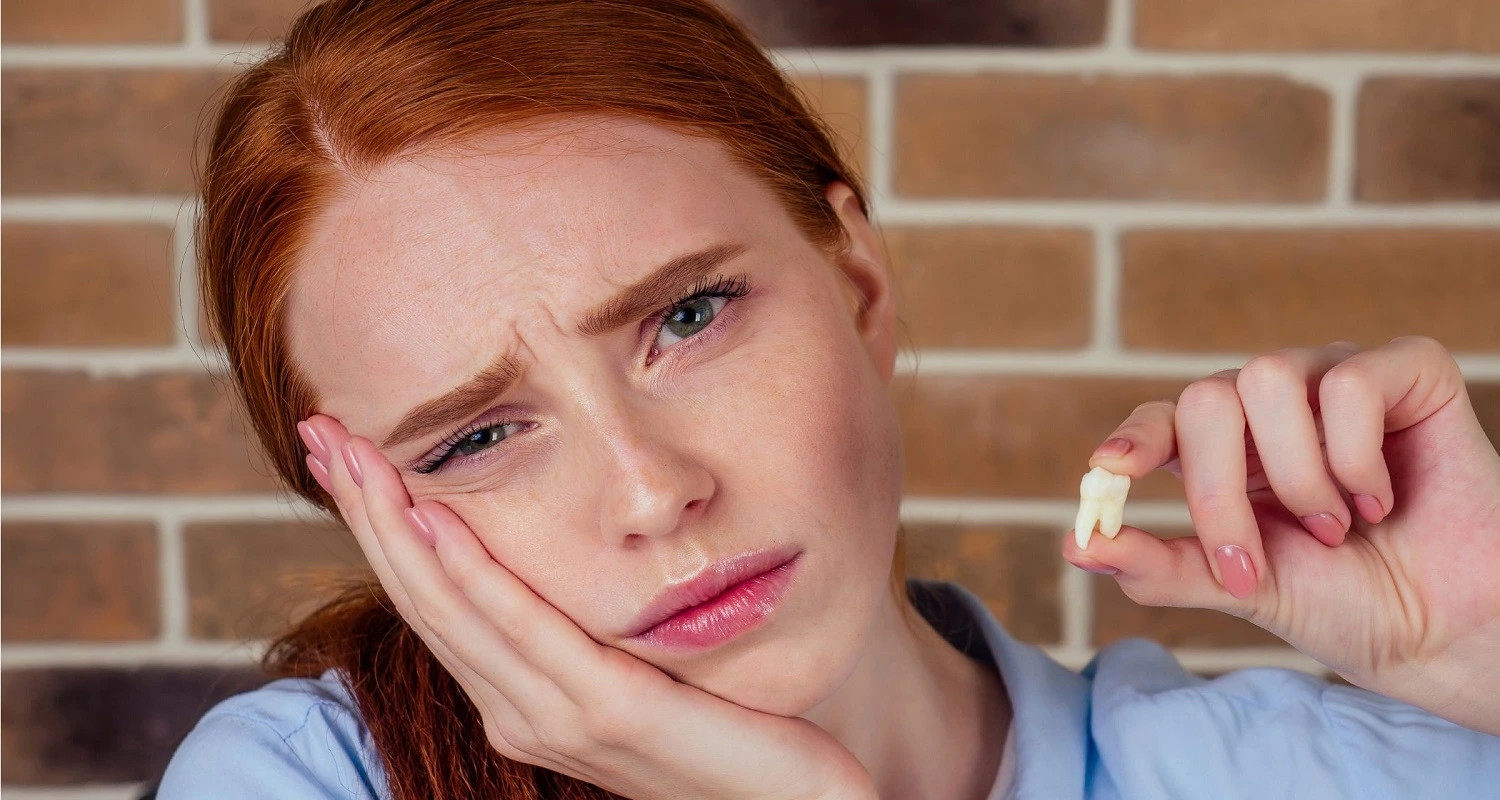✓ Fact Checked 🕓
❙ Our team of writers, editors, and medical experts rigorously evaluates each article to ensure the information is accurate and exclusively cites reputable sources.
❙ We regularly assess how the content in this article aligns with current scientific literature and expert recommendations in order to provide the most up-to-date research.
Headaches can become disabling for many people when not controlled or they become stronger, so the question is, can wisdom teeth cause migraines?
According to the World Health Organization, around 50% of the world’s population suffers from a headache at least once a year; on average half of the adults between the ages of 18 and 65 have had a headache with 30% experiencing migraine.
A migraine is one of the most frequent and disabling diseases in the active population (22-55 years old) and one of the ten main diseases suffered by the population worldwide. It is the most prevalent in females.
It is estimated that close to 44 million people in the United States have this health problem.
Next will be a review of how this health problem is sometimes associated with wisdom teeth or another oral problem.
What is a Migraine?


A migraine is a type of primary headache, characterized by pulsating pain, sometimes located on one side of the head that worsens with movement. It can have different manifestations.
According to studies, it has been identified that the cause is the activation of an encephalic mechanism that leads to the release of inflammatory and pain-causing substances around the nerves and blood vessels of the head.
It is generally recurrent and can occur for the rest of the person’s life with frequent episodes.
Types of Migraines and their Symptoms
A migraine can manifest ways, and the symptoms can vary. it is possible to classify this type of headache if it occurs continuously. Migraine episodes can be characterized as:
• Having moderate to severe intensity
• Throbbing pain on one side of the head
• Worsening with physical activity
• Lasting a few minutes, hours, or days
• Causing nausea and dizziness
It is possible to classify migraines as follows:
Classic migraine: characterized by visual symptoms (migraine with aura) before feeling pain. You may see zigzag lines, colored or glowing lights, or flashes of light on only one side of your field of vision. These symptoms can last up to 30 minutes.
Common migraine: It is possible to present visual symptoms without presenting pain. This is called a migraine without aura.
Episodic migraine: with less than 15 headache days per month represents 90% of cases.
Chronic migraine: at least 15 headache days per month of which 8 or more meet the criteria for migraine with or without aura, for more than three months. It represents 5 to 10% of them.
What are Wisdom Teeth?
Wisdom teeth or also called third molars. They are the last teeth to come out at the back of the mouth behind the second molars. Adults generally have four wisdom teeth, one in each quadrant.
Although these teeth commonly show signs of eruption between the ages of 17 and 21, it does not always happen at this exact time; they may never develop and erupt, or it may happen around age 30.
When can I Associate Migraines with Wisdom Teeth?
When the wisdom teeth are not well positioned or there is not enough space, it is possible that in the process of growth and development, they generate pain. It can also happen when they emerge at an inappropriate angle. In either of the two cases, the pain infers that the teeth are impacted, which means they cannot emerge correctly.
Another cause that can generate migraine pain is when the maxilla is very small and a second molar erupted some time ago, obstructing the passage of a wisdom tooth and preventing it from taking its correct position. The tooth continues to push, making the process painful.
This can cause complications such as:
• Wisdom tooth pain
• Infection
• Cavities
• Gum disease
• Damage to neighboring teeth
• Cysts
• Tumors
Can Wisdom Teeth Cause Migraines?


When wisdom teeth start to grow or attempt to erupt, they can exert pressure on the sinuses or jaw, resulting in pain that radiates to various areas of the face, including both upper and lower regions. If someone experiences frequent migraines, these could potentially be triggered by this discomfort. That’s why there’s an option to consider the potential need for wisdom tooth removal. To learn more about whether wisdom teeth have to be removed, you can read this article.
However, if a person is undergoing treatment for migraine events and the wisdom tooth erupts, it may exacerbate the pain and increase headache frequency. The central nerve in the head picks up the irritation and given that the receptors in the head and mouth are connected, this exacerbates the symptoms.
Another situation is when wisdom teeth cause a migraine in certain people with bruxism or tension in the temporomandibular joint, and it is not managed properly, causing migraines to become chronic.
Impacted Wisdom Teeth Treatment
There are many treatments for this condition, ranging from home remedies to surgical procedures. However, in the case of migraine, it is best to see a doctor or neurologist if a wisdom tooth problem or some other oral health problem has been ruled out.
Can impacted wisdom teeth cause migraines? Of note, impacted wisdom teeth are not preventable. Therefore, it is best that a dentist continuously monitors their growth and development, to identify the space, their position, and other signs or symptoms that determine a diagnosis.
One of the first treatment options recommended for painful wisdom teeth is oral surgery. This means that it is extracted to control pain and migraines, among other oral health problems that can be generated. This procedure is usually performed by an oral surgeon or dental professional with proper equipment and experience.
However, the postoperative period of this procedure can also generate different symptoms and discomfort such as insomnia, pain, stress, and anxiety, among others. Any of them can trigger a migraine. Know that it takes only a few days to recover, and then everything should have improved.
Management at Home of Impacted Wisdom Teeth


When we cannot see the dentist or doctor immediately, the pain from the migraine can become disabling. Therefore, you can try to manage it at home, but it will be temporary. Other complications could occur in your oral or general health. Some recommendations are:
1. Management with over-the-counter analgesics.
Aspirin is effective in managing dental pain, but it does not apply to all people. It is recommended to review the contraindications and warnings on the packaging.
2. Rinsing with warm salt water
It will keep the mouth free of bacteria as well as help reduce pain and inflammation.
3. Oral hygiene
It is key to avoiding any health problem; some rinses may help improve the symptoms.
4. Applying hot and cold therapy
Applying using compresses is suggested. External application on the cheeks will help reduce inflammation and therefore pain.
When the pain becomes disabling, throbbing, severe, and you cannot tolerate any movement or light, and if there are changes in vision or perception of odors, among other symptoms, see a doctor immediately for proper management.
Can wisdom teeth cause headaches? Particularly when wisdom teeth and headaches coincide. Several oral health issues can trigger migraines, and if left unaddressed or unexplored, they can develop into a persistent condition that hampers your productivity and finances. Hence, it is advisable to schedule regular appointments with an oral health specialist. Additionally, here are 10 simple and effective home remedies for wisdom tooth pain.
Share:
References
1. Dominguez-Moreno, Rogelio, Vega-Boada, Felipe, & Mena-Arceo, Roger Gaspar. (2019). New treatments against migraine. Internal Medicine of Mexico, 35(3), 397-405. Epub March 05, 2021. https://doi.org/10.24245/mim.v35i3.2712
2. Renton, T., & Wilson, NH (2016). Problems with erupting wisdom teeth: signs, symptoms, and management. The British journal of general practice : the journal of the Royal College of General Practitioners, 66(649), e606–e608. https://doi.org/10.3399/bjgp16X686509
3. Mayo Clinic. (Mar 10, 2018). Impacted wisdom teeth. https://www.mayoclinic.org/diseases-conditions/wisdom-teeth/symptoms-causes/syc-20373808
4. Boyd, K. (May 06, 2022). What is Migraine?. American Academy of Ophthalmology. https://www.aao.org/eye-health/diseases/what-is-migraine
5. World Health Organization – WHO. (Apr 08, 2016). Headaches. https://www.who.int/es/news-room/fact-sheets/detail/headache-disorders
6. Frothingham, S. (Dec 12, 2019). Can Wisdom Teeth Cause Headache Pain?. Healthline. https://www.healthline.com/health/headache-from-wisdom-teeth
7. Farnsworth, C. (May 30, 2022). Wisdom teeth and migraine: Links. Medical News Today. https://www.medicalnewstoday.com/articles/wisdom-teeth-migraine











